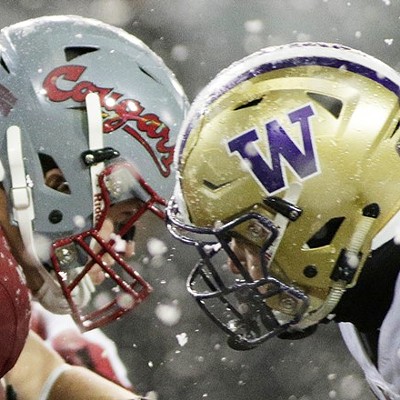What about natural gas?
[
{
"name": "Broadstreet - Instory",
"insertPoint": "5",
"component": "25846487",
"requiredCountToDisplay": "5"
},{
"name": "Broadstreet - Instory",
"insertPoint": "10",
"component": "25846487",
"requiredCountToDisplay": "10"
},{
"name": "Broadstreet - Instory",
"insertPoint": "15",
"component": "25846487",
"requiredCountToDisplay": "15"
},{
"name": "Broadstreet - Instory",
"insertPoint": "20",
"component": "25846487",
"requiredCountToDisplay": "20"
}
]
& & by Ted S. McGregor, Jr. & & & &
While pundits are saying the electricity mess in California is endangering the entire Western United States, here in Eastern Washington, residents are focused on another seemingly out-of-control power source: natural gas.
While Californians are experiencing rolling blackouts, local residents may black out when they open their latest natural gas bill. With natural gas prices at all-time highs, people are wondering why they switched over to what was once billed as the cheapest way to heat your home.
"What we have now is a classic supply and demand scenario," says Scott Morris, president of Avista Utilities, which had to pass higher natural gas prices on to its customers starting last month. "Even though every rig is in service, this blip of high prices will probably last another six to 12 months."
Morris says that while natural gas prices stayed low over the past decade or so, there was no incentive for producers to add more wells, since they couldn't hope to pay for them with such low prices. On top of that stagnant supply is the newly completed pipeline from Alberta to Chicago. Previously, the gas fields of Alberta and British Columbia were feeding only the Western U.S., but now the Midwest is tapping into that supply as well.
As for California's shortage of electricity, Morris says the short-term effect is that utilities like Avista are trying to insulate themselves from the vagaries of the market by owning enough generating capacity to meet their own commitments. That way, they won't have to buy any electricity on the open market.
Avista is finalizing plans for Coyote Springs, a natural gas-fired electrical generating plant in Boardman, Ore., which will add another 280 megawatts to their capacity.
"Avista owns enough generation -- 90 percent -- to serve its customers, and our main objective is to serve our customers," says Morris, pointing out that companies that bought the generating plants from utilities forced to divest under deregulation in California are only committed to their own bottom line.
As for the long-term fallout from California, Morris says deregulating the industry in Washington and Idaho may be the first casualty, as the likelihood of politicians getting behind the once-popular plan has evaporated. Still, he says, the Northwest remains in a relatively good position.
"When you have the lowest electric rates in the country, you've got to really think about deregulation," he says. "Can prices go any lower when you're already the lowest?"
While pundits are saying the electricity mess in California is endangering the entire Western United States, here in Eastern Washington, residents are focused on another seemingly out-of-control power source: natural gas.
While Californians are experiencing rolling blackouts, local residents may black out when they open their latest natural gas bill. With natural gas prices at all-time highs, people are wondering why they switched over to what was once billed as the cheapest way to heat your home.
"What we have now is a classic supply and demand scenario," says Scott Morris, president of Avista Utilities, which had to pass higher natural gas prices on to its customers starting last month. "Even though every rig is in service, this blip of high prices will probably last another six to 12 months."
Morris says that while natural gas prices stayed low over the past decade or so, there was no incentive for producers to add more wells, since they couldn't hope to pay for them with such low prices. On top of that stagnant supply is the newly completed pipeline from Alberta to Chicago. Previously, the gas fields of Alberta and British Columbia were feeding only the Western U.S., but now the Midwest is tapping into that supply as well.
As for California's shortage of electricity, Morris says the short-term effect is that utilities like Avista are trying to insulate themselves from the vagaries of the market by owning enough generating capacity to meet their own commitments. That way, they won't have to buy any electricity on the open market.
Avista is finalizing plans for Coyote Springs, a natural gas-fired electrical generating plant in Boardman, Ore., which will add another 280 megawatts to their capacity.
"Avista owns enough generation -- 90 percent -- to serve its customers, and our main objective is to serve our customers," says Morris, pointing out that companies that bought the generating plants from utilities forced to divest under deregulation in California are only committed to their own bottom line.
As for the long-term fallout from California, Morris says deregulating the industry in Washington and Idaho may be the first casualty, as the likelihood of politicians getting behind the once-popular plan has evaporated. Still, he says, the Northwest remains in a relatively good position.
"When you have the lowest electric rates in the country, you've got to really think about deregulation," he says. "Can prices go any lower when you're already the lowest?"



















